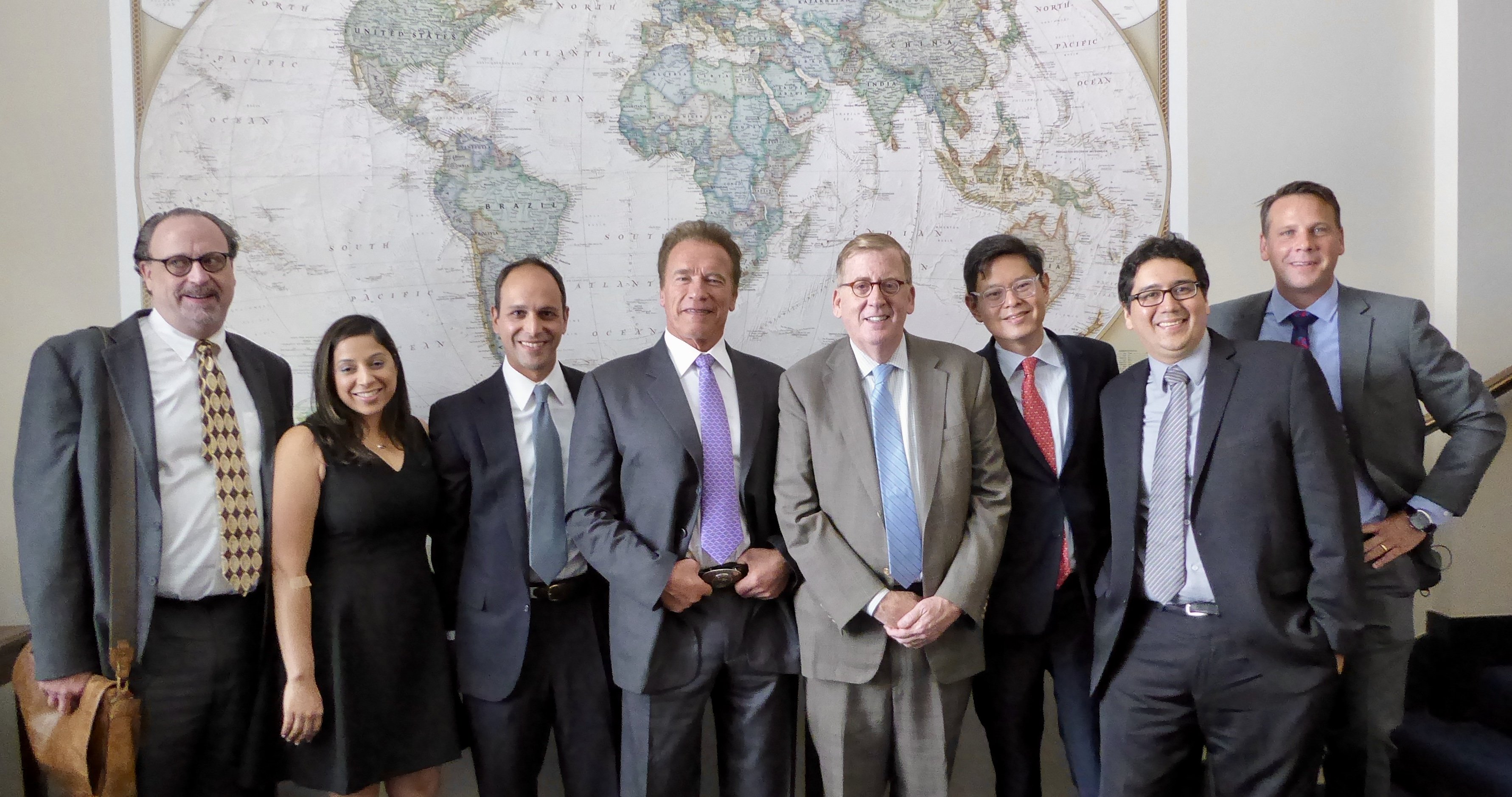The United States has 26 states with voter initiatives and 24 that do not offer this form of direct democracy. The Institute is working with a coalition of good government groups on ending partisan gerrymandering through both ballot initiatives and the legal process. There are a handful of states queuing up to go the U.S. Supreme Court on this issue, the first is Wisconsin.
During his Washington visit Governor Schwarzenegger met with the litigation team representing the 12 Wisconsin voters who challenged the state’s district lines as an unconstitutional partisan gerrymander in Gill v. Whitford. Governor Schwarzenegger was particularly interested in discussing litigation strategy and exploring ways that he and the USC Schwarzenegger Institute can provide support for the case ahead of the U.S. Supreme Court hearing oral arguments on October 3, 2017.
Gill v. Whitford questions the legality of Wisconsin’s partisan gerrymandering of State Assembly districts in 2011. That year Republican lead legislators redrew districting lines in a secret office – away from the Capitol, the public and the press – and then rushed the passage of their plan through the Assembly resulting in their party gaining 60 percent of the seats in the Assembly, despite only receiving 49 percent of the statewide vote in 2012.
Although there is considerable evidence showing the negative impacts of gerrymandering on American democracy, and the U.S. Supreme Court holds that it has authority and responsibly to decide partisan gerrymandering claims, the Court has yet to adopt a standard for determining whether a redistricting plan constitutes a partisan gerrymander. According to the Campaign Legal Center, a key member of the litigation team, “every proposed test to date has been deemed unworkable by the courts – too ambiguous and subjective to reliably identify the most objectionable plans. Without a legal standard, voters are free to challenge politically motivated maps in court, but judges, without clear guidance, ordinarily dismiss these cases out of hand. The result is voters, like those in Wisconsin, are unable to hold their representatives accountable and reign in extreme partisan gerrymanders.”
The plaintiffs in Gill v. Whitford are hoping they will be successful in establishing the “efficiency gap,” a quantitative measure of gerrymandering, as a manageable standard by which courts nationwide can analyze the number of wasted votes in an election and thereby determine if partisan gerrymandering took place. This is tool is particularly important in the 24 states where voters do not have access to the ballot initiative process and must rely on politicians who benefit from the current system to bring change. Governor Schwarzenegger and the USC Schwarzenegger Institute, along with advocates for political reform and good governance are all intensely focused on the Gill v. Whitford case and its potential to set a standard that will help voters in all states demand fairer elections and nonpartisan electoral district boundary mapping.

